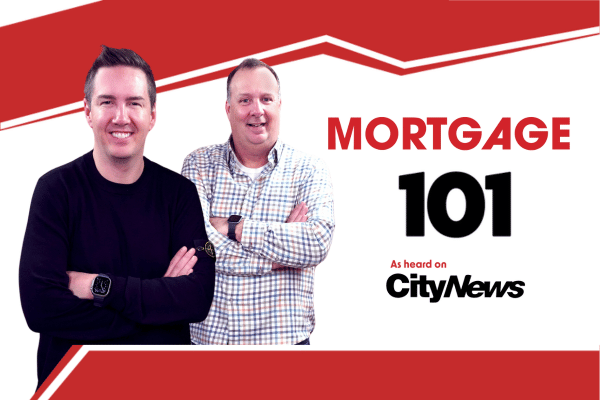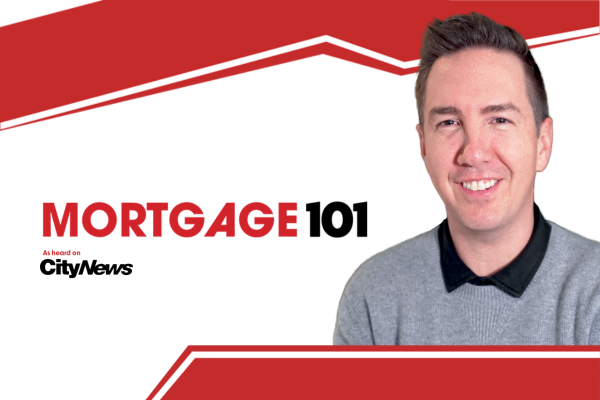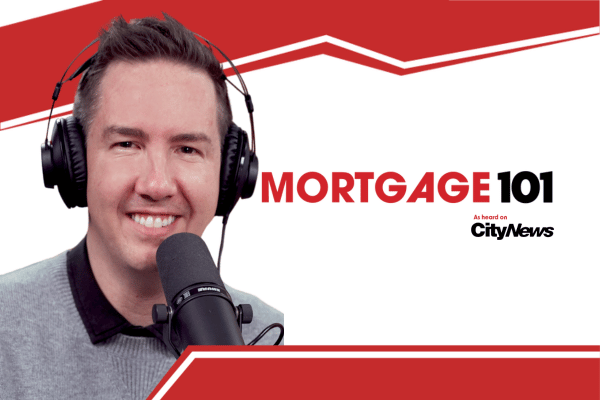Clinton Wilkins and Todd Veinotte are back this Spring to discuss the latest budget updates, including changes in mortgages and housing incentives. Plus, a debate between Beyonce and Dolly Parton country renditions and how the new housing incentives for new builds may expand the construction industry here in Nova Scotia!
Mortgage 101 – investing in real estate | July 2021 Part 2
In this episode of Mortgage 101 with Clinton Wilkins and Todd Veinotte, as heard on News 95.7, the guys talk about investing in real estate for first-time home owners and current home owners, plus an update on local real estate market prices.
Mortgage 101 with Clinton Wilkins & Todd Veinotte – July 2021 – Part 2
Don’t feel like watching the video? Check out the transcript below.
Transcript:
Is a home where the heart is, a housing stock, or both?
Todd Veinotte: [00:00:00:04] Alright, so let’s talk about some investment properties. First of all, when it comes to a home, some people view it in different a lens. Some people look at it as sentimental. They make that connection with home and all that.
Other people look at it purely as an investment. Some people it’s a combination of both. How do you view that? Do you look at it as a commodity? Somebody’s house?
Clinton Wilkins: [00:00:26:26] You know, I use the verbiage housing stock all the time and I’ve definitely received negative feedback, you know, some of it from our listeners here on the radio stations. You know what? Because, you know, a lot of people think of their home as you know, the heart is where the home is.
First-time home buyers and gifted funds
I really think of even your primary residence as an investment and I think for more and more people these days, it is an investment. You know, I’m talking to a lot of parents of first-time home buyers. And, you know, we’ve mentioned this before that, some people are even selling their homes to be able to provide, you know, a gift to their first-time home buyer.
Sometimes they’re mortgaging their home, or maybe they’re putting a home equity line of credit on their home to provide a big gift. You know, as the home prices increase, people that are already in the housing market are benefiting from that. And, you know, I think without some help, first-time home buyers are becoming sometimes priced out of that marketplace. They need the gift.
And, you know, it may be as easy as a gift of five per cent of the purchase price, but I’m certainly seeing a lot of large gifted funds that are coming from family in terms of like even like a six figure amount, enough that first-time home buyer can even put down 20 per cent. Which is pretty amazing if you are a first-time home buyer and you don’t need that insurance from the Canadian Mortgage and Housing Corporation or one of the two private insurers.
Housing stock or traditional stocks — which is better?
Todd Veinotte: [00:02:00:24] So from a financial planning standpoint, I know people talk about having a diversified portfolio, but if somebody had money and they could pay down a mortgage or they could put it into the market, mutual funds, whatever it might be, that sometimes, depending on who you ask what their methodology is.Where is your mind go when it comes to, are you best off putting cash into a house, or investment, or because mortgages we know are rock bottom?
Clinton Wilkins: [00:02:29:19] There’s two schools of thought. You know, for me, I think you should pay off your debts first. So this is like unsecured debts, car loans. You know, if it’s more than zero per cent interest. Once all your debts are paid off, then you should max out your RRSP and your TFSAs.
Personally, you know, these are vehicles that could help you in terms of your tax liabilities now and, you know, protecting you from, you know, tax on any of those gains and then focus on paying down your mortgage. Mortgage rates are really at all time lows. You know, a good variable rate today is, you know, uninsured purchase 1.35 per cent. At those rates, you should ride it out.
Other people are like, let’s take advantage of these low rates and pay it down faster, in my opinion, now’s a great time to save and you can pay it down faster later if you have time later. So I think it’s really a personal opinion and I certainly don’t sit in your household, but I have these same conversations with borrowers every day and it’s first-time home buyers and it’s existing home owners even thinking about going into retirement. I’m having these same conversations and it’s a personal preference.
“We are not biased to the lender, we are biased to the consumer.”
Not every strategy is right for everyone. I’m also not a financial adviser or a financial planner. I work in finance. I do mortgage lending every day. I’m more motivated for people to take the largest mortgage they can take because we get paid based on volume.
We don’t get paid based on rate. And I think that’s what’s really important to remember. And that’s a great reason to want to use an unbiased mortgage professional like us to do your mortgage lending.
Clinton Wilkins: [00:04:13:15] Because we are not biased to the lender, we are biased to the consumer, because we’re in a relationship business really with the consumer. We want to make sure that clients come back to us and we want to feel like they’ve got great advice and a great deal.
Mortgage lending is a team effort
And, you know, I don’t think it’s the same maybe with the bank branch or the credit union. They think that they have their arms in the fence around the client. But there’s such a large turnover even in those institutions. And with us, you know, I’ve been doing this for 15 years. And, you know, we’re coming up on a billion dollars of mortgages funded here in Nova Scotia and across the country. So we’re certainly doing a lot here from our office in Halifax and Dartmouth.
I think that provides a little bit of economies to the client. So what that means is maybe the rate’s a little bit lower, Todd, or maybe we’re able to provide better service or better communication because we have that technology and we actually have a quite a good sized team.
And it’s not just me. So when people call, we really pride ourselves during the week to answer the phone. We try to get back to people right away over email. And I think it’s really all about that experience the customer gets. I do get the calls that borrowers call me in a panic because they are financing deadlines coming up or something, you know, it’s time sensitive. And the lender that they were using just isn’t getting back to them.
Will real estate prices go down?
Clinton Wilkins: [00:05:37:13] And obviously it’s busy. I get that everyone, you know, the market and we’ve seen lots of increases, lots of transactions, but actually read a stat that the sales for June actually are showing signs of slowing in Nova Scotia. Is it going to cool off? I don’t think so, but I can tell you a little bit of reprieve, I think is OK. I think things are going to renormalize a little bit, but I do not believe the prices are going to go down.
I think the prices, you know, have increased and I think we’ve now kind of seen the new normal. But you could of asked about, you know, an investment and your home might be an investment, but what about maybe a rental property or what about a cottage? Those can be investments, too. And I think that, you know, when you’re thinking about an investment, it’s not just buying an investment property.
It could be a bigger home because maybe that bigger home will appreciate faster than the home you have now. Or maybe it’s just buying your first home, paying down the mortgage, improving the property and increasing your net worth every month that goes by. So I don’t think, you know, investing in real estate is just buying rental properties. It could be a second home. It could be a vacation property. I don’t know.
But I think there’s lots of options. And I think that there’s lots of things that are right for a lot of people. And the one thing I can mention to you is there’s way more listings now in June and July than there have been in the months prior.
Increased listings this summer
Todd Veinotte: [00:07:08:04] Why do you think that is?
Clinton Wilkins: [00:07:10:16] I think sometimes people were maybe holding off or people were scared. You know, there was a lot going on with COVID, but I feel like there’s a lot of motivation. And, you know, we have a really great vaccination rate here in Nova Scotia. Things are getting back to normal.
And I think that we’re going to renormalize, you know, at one point before kind of the third wave, every third call we were getting was from Ontario. And then the province really shut it down where even people if they bought a home, they could not come here unless they had a purchase agreement before a certain date. But I’m seeing more activity in the market.
But it’s more of a normal type of activity. So I’m motivated. I can tell you our team’s motivated. We’ve just moved into our brand new office in Halifax and, you know, still having our office in Dartmouth and serving clients across Nova Scotia and really across the country.
So we’re pretty excited and we’re happy. And I think that the clients are happy, too. And realtors are happy and lawyers are happy. There’s a lot of optimism in the air. And, you know, we’re feeling pretty good.
See you next time!
Todd Veinotte: [00:08:16:11] Excellent. I want to talk to you more about cottages, though, but we need a break. So we’re going to do that, if that’s okay with you?
Clinton Wilkins: [00:08:21:23] Yeah, we’ll talk more about cottages and maybe we can talk a little bit more about some refinances. I know we’re getting lots of questions about refinances right now. You think, it’s purchase season, but guess what? It’s a great time to just talk about everything, mortgage lending.
Todd Veinotte: [00:08:34:20] You got it. Okay, so we’ll be back with Mortgage 101: Your Guide to Homeownership with Clinton Wilkins and myself, Todd Veinotte. We will be back.
If you have any questions, get in touch with us at Clinton Wilkins Mortgage Team! You can call us at (902) 482-2770 or contact us here.


